
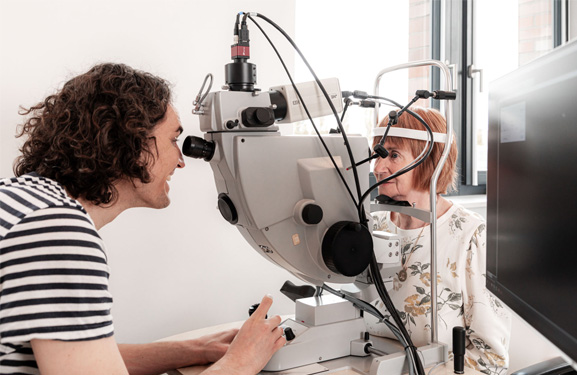
Age-related macular degeneration
Treat AMD at Sanoculus in Berlin
Table of contents
Age-related macular degeneration (AMD) is a visual disorder that leads to a gradual deterioration of vision and the incidence of which increases with age. Faces and details gradually appear blurry, colors fade and contrasts decrease – until finally only a dark spot is perceptible.
The treatment of macular diseases is a focus in our Sanoculus Eye Center. With the help of modern treatment methods and the latest scientific findings, our experienced ophthalmologists can improve the eyesight of AMD sufferers – for clear vision in everyday life.
Our ophthalmologists provide information
What is macular degeneration?
The macula, also known as the “yellow spot”, is the visual centre of the human eye and is responsible for sharp vision. Metabolic disorders are responsible for deposits and fluid retention in the macula.
This results in a deterioration in the nutrient supply and ultimately leads to macular degeneration. The cause of the metabolic disorder has not yet been clearly clarified and the speed at which AMD progresses varies from patient to patient.
Dry macular degeneration (dry AMD)
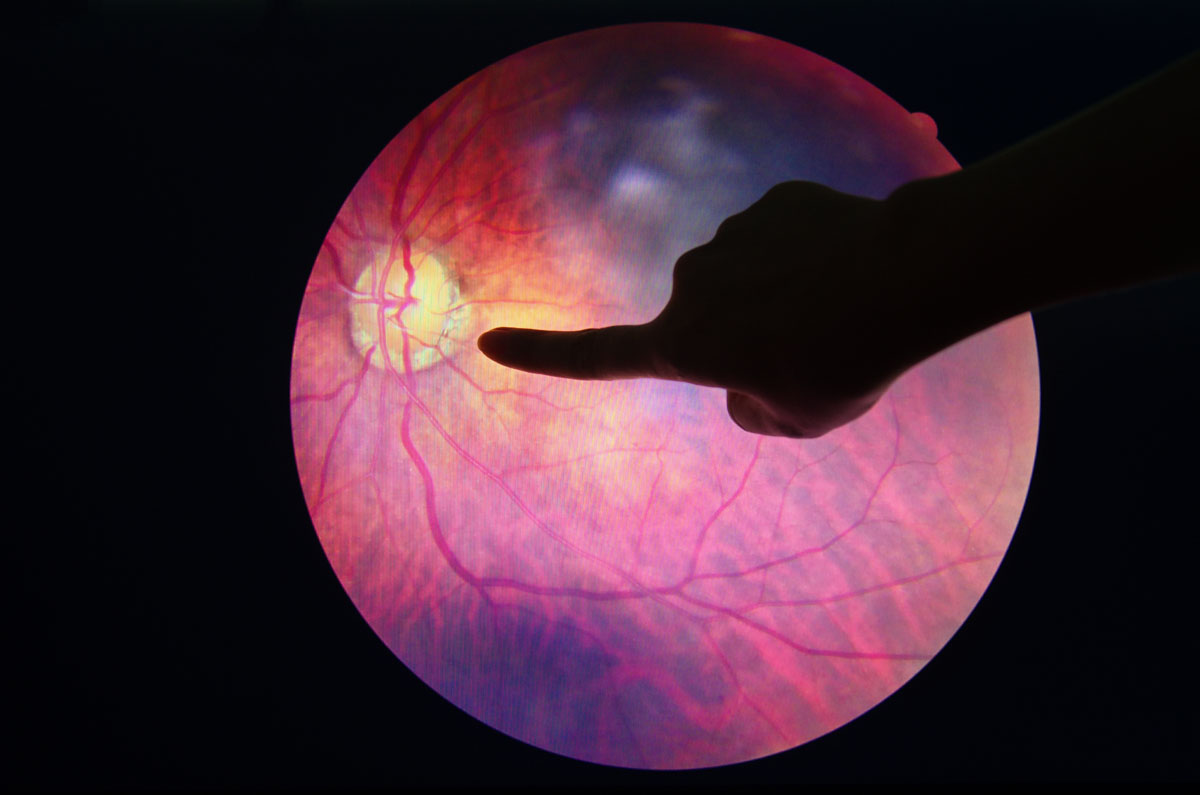
The dry form of age-related macular degeneration usually has a rather slow course – extended to months and sometimes even years. About 80% of AMD patients are affected by this form. Slight visual impairment occurs at an early stage and without treatment, the retinal cells die later. The wet form of macular degeneration can develop from the dry variant.
Wet macular degeneration (wet AMD)
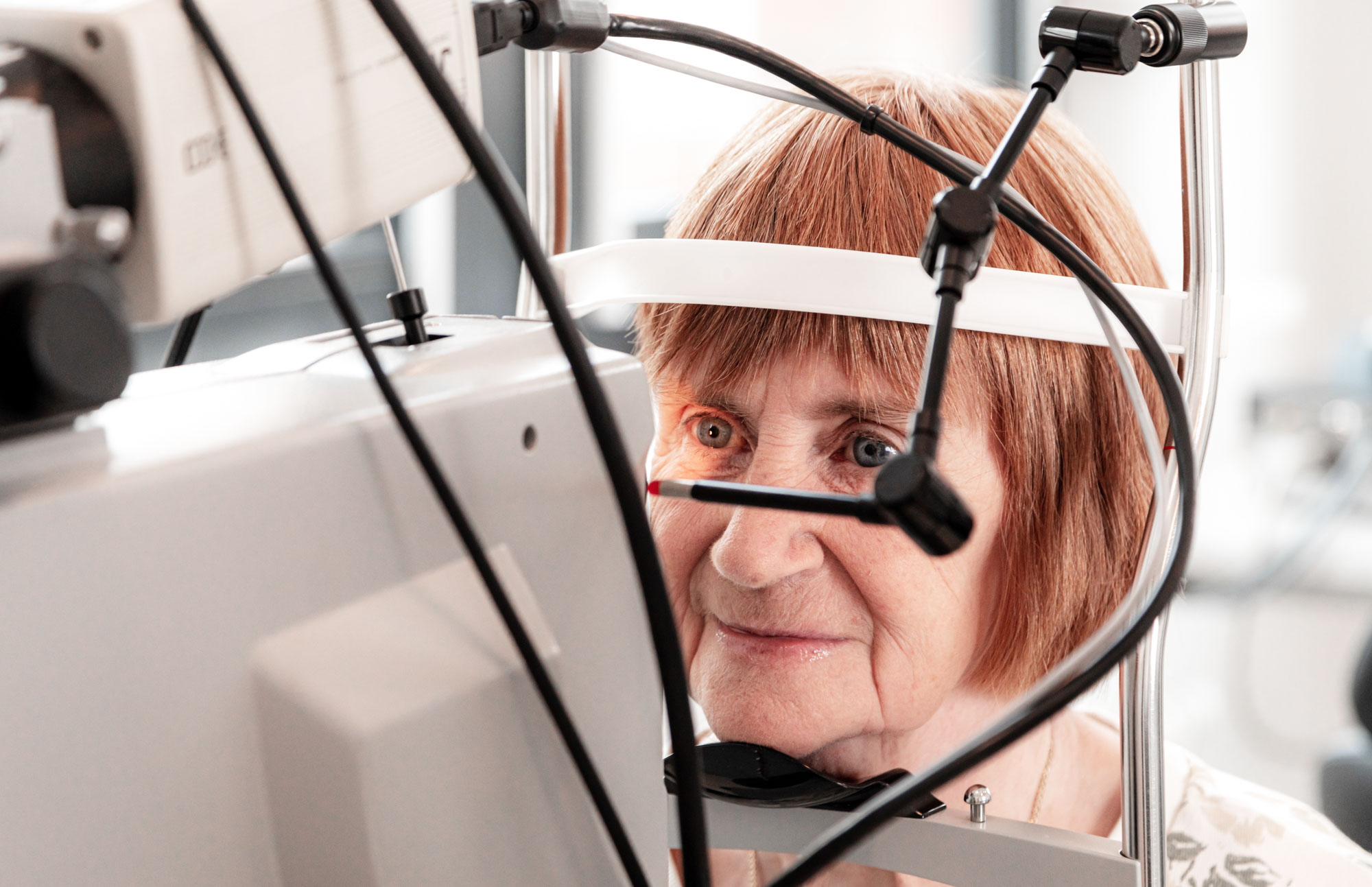
In wet AMD, vision usually deteriorates rapidly. The body tries to improve the nutrient deficiency of the retina by forming new blood vessels. In principle, this protective reaction of the eye is a good property, but due to the high speed, the vessels are neither stable nor tight – which can lead to sudden loss of vision. An accurate diagnosis of the AMD form is made by an ophthalmological examination.
“I’ve had these injections in three different clinics and this is where it was best.”
“I have been injected here regularly for a long time and feel well cared for and have great confidence in Dr. Jerrentrup and his team.”
What to look out for?
How do I recognize AMD?
Whether you yourself or someone in the family suffers from macular degeneration can be recognized by a few typical AMD symptoms :
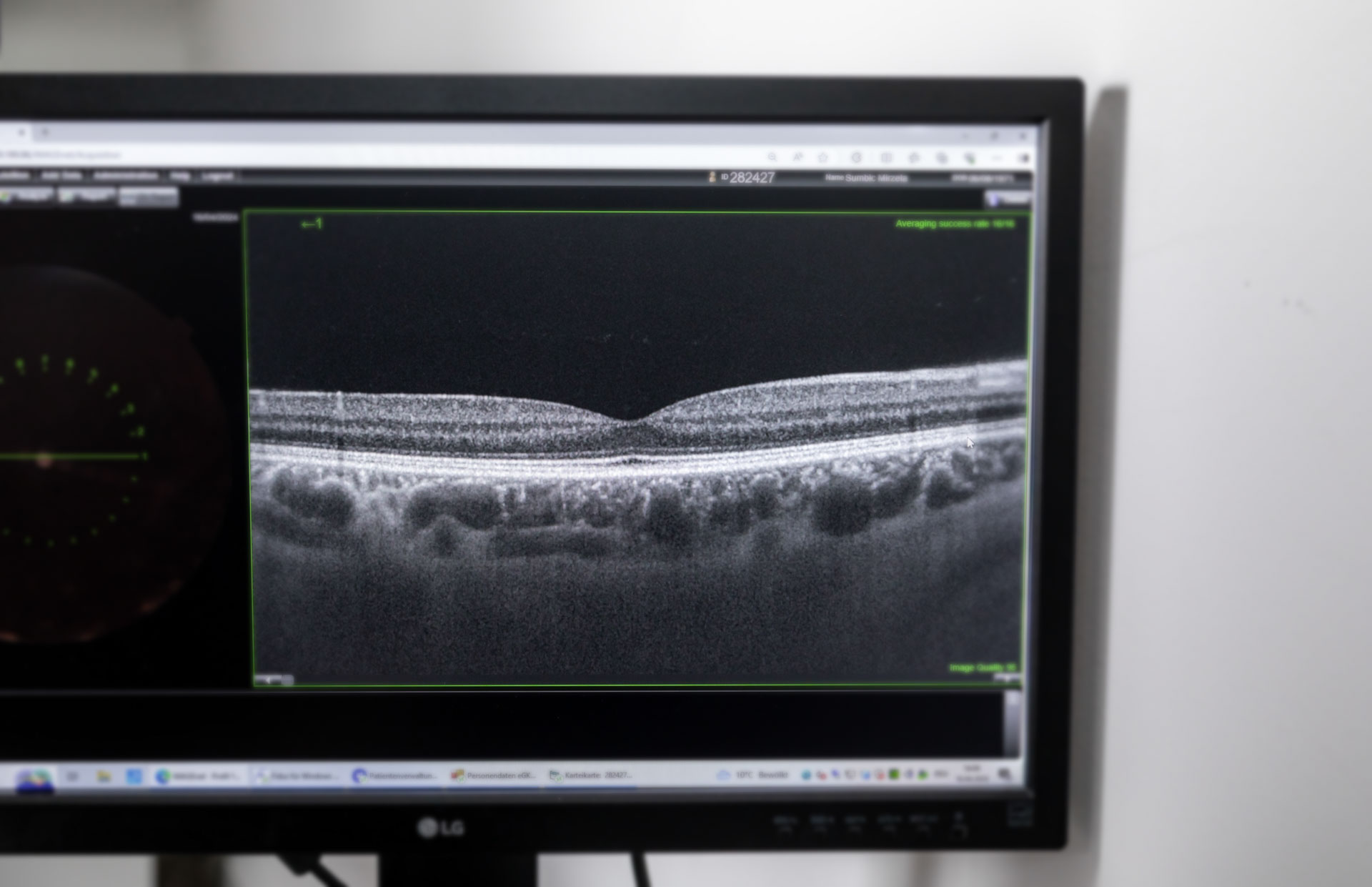
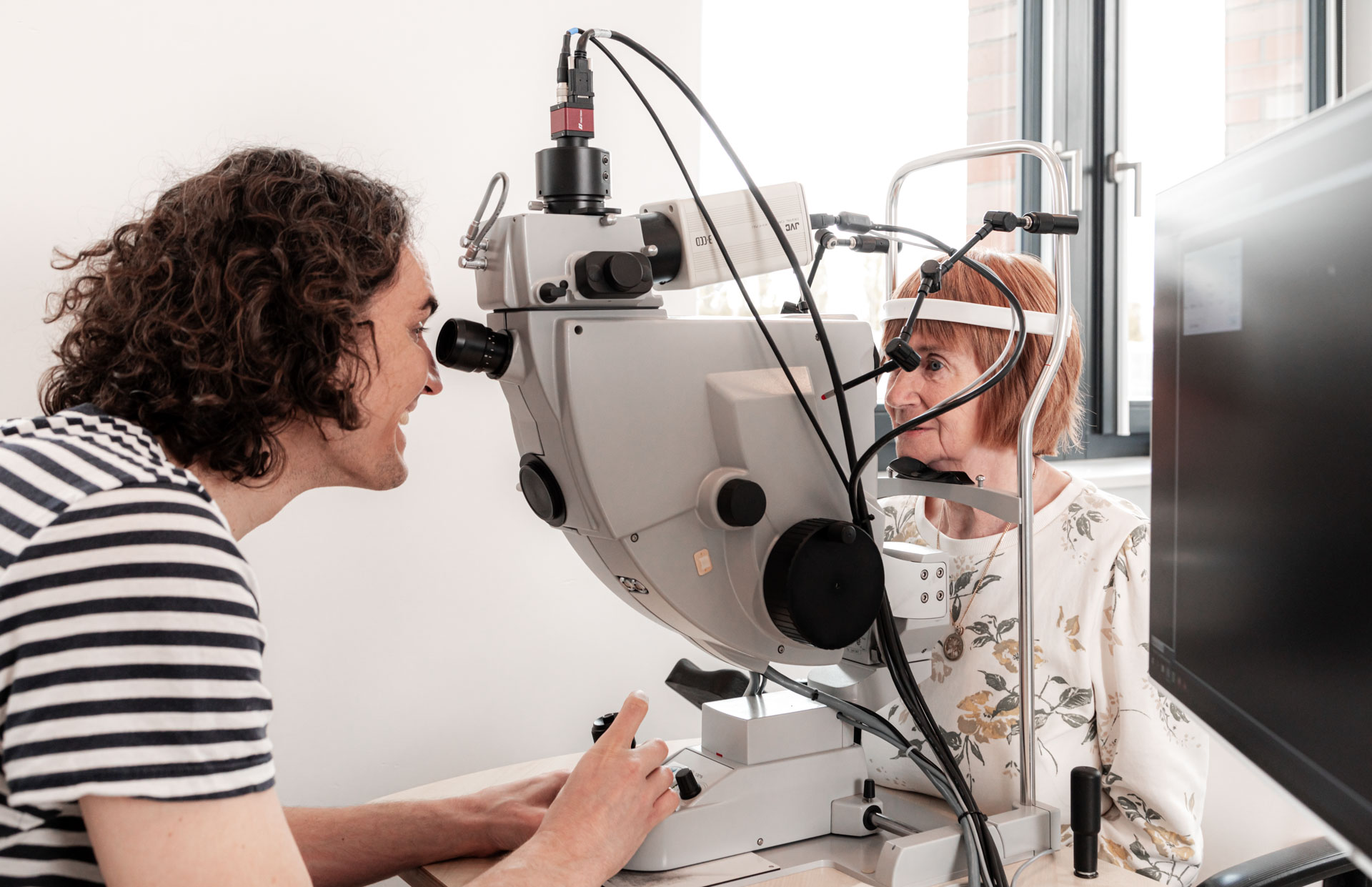
What is possible with wet AMD?
Therapy
IVOM therapy (intravitreal injection) is considered an extremely effective treatment method for the wet form of macular degeneration. In this procedure, drugs that inhibit vascular formation are injected directly into the vitreous humor of the eye. Thanks to local anesthesia, this process is painless. Further treatment then depends on the success of the treatment.
Macular degeneration:
Prevention by experienced specialists
The diagnosis and treatment of macular diseases is a focus of our Sanoculus ophthalmology practices in Berlin. In the ophthalmological diagnosis of macular diseases, a thorough anamnesis is the top priority. We recommend that all patients over the age of 60 undergo a preventive examination for early detection by our experienced ophthalmologists.
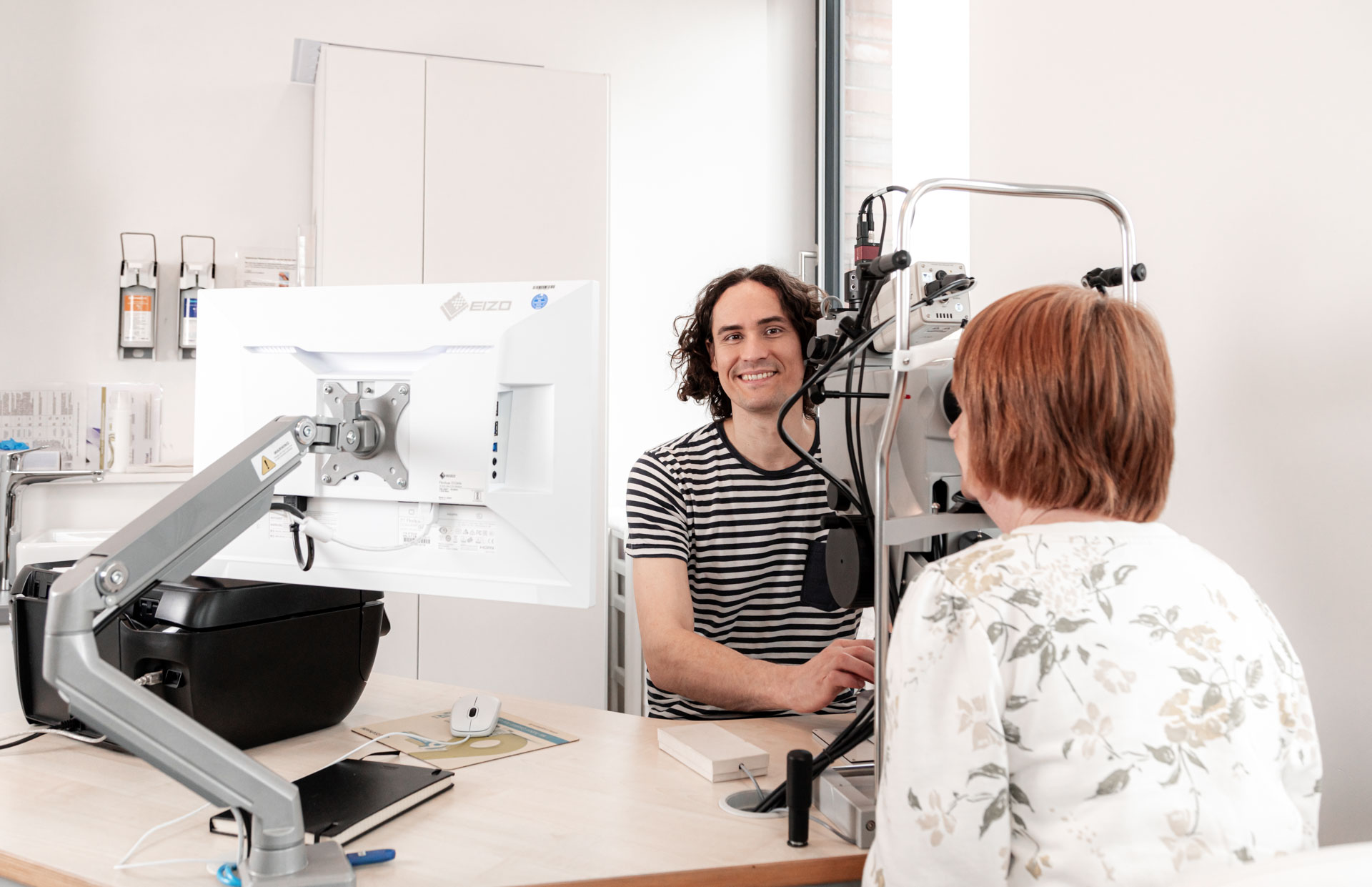
Frequently asked questions about macular degeneration
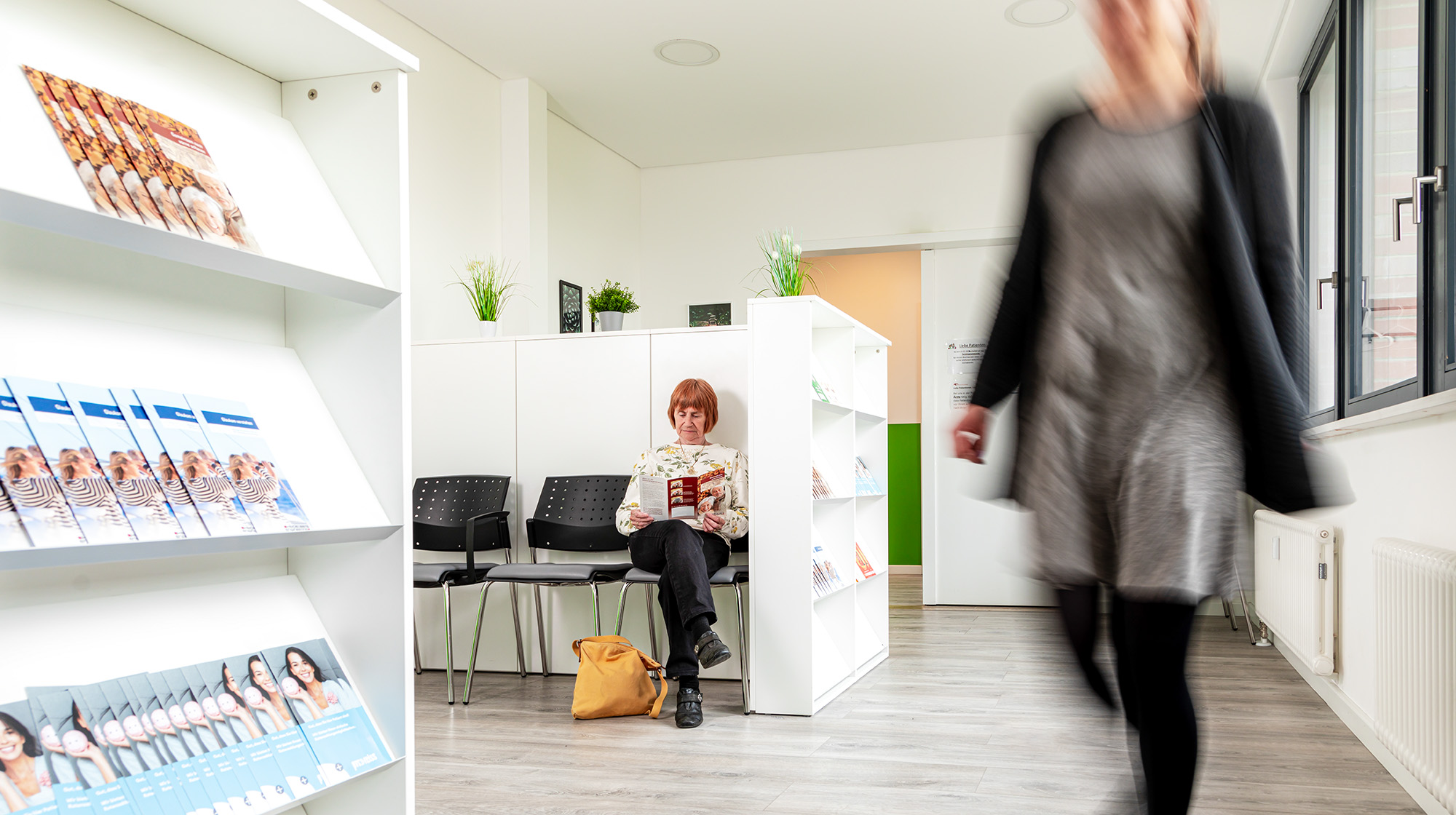
For medical colleagues:
Patient referral for eye operations
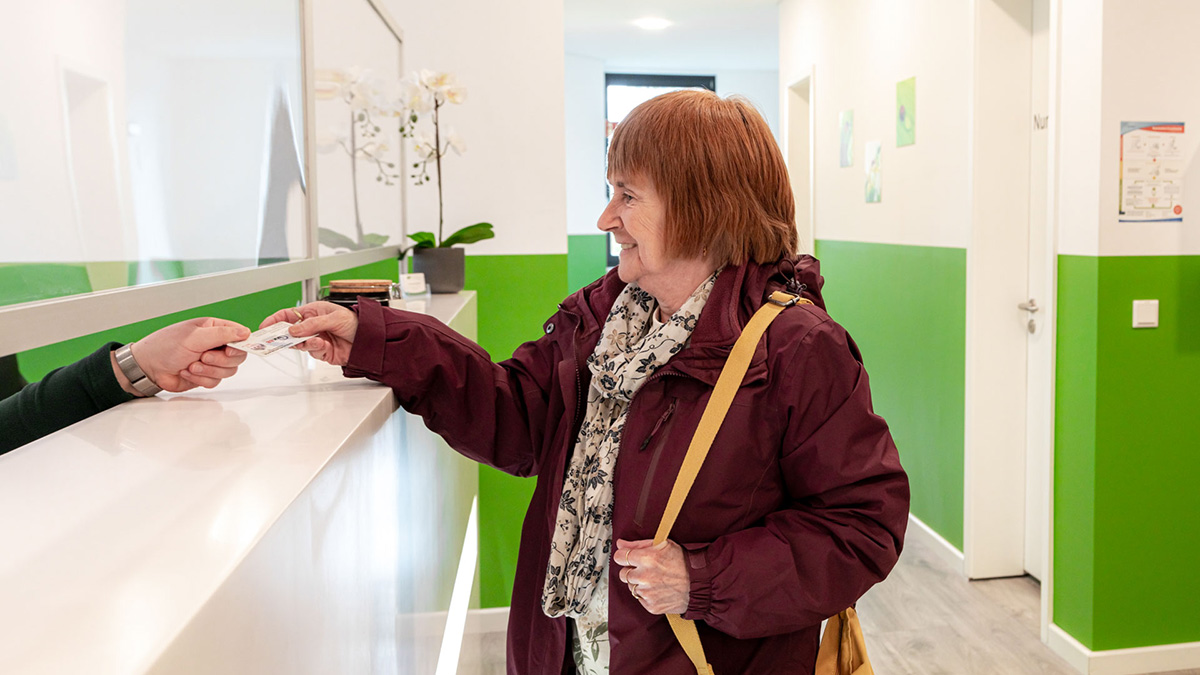
Are you looking for specialists for eye surgery in Berlin for your patients? If you would like to refer your patient to us, please register them for our consultation hours. Please include any previous findings (hospital letters, old FLAs or OCTs etc.) directly.
This way we can avoid unnecessary duplicate examinations.



